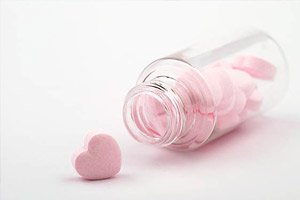
All iLive content is medically reviewed or fact checked to ensure as much factual accuracy as possible.
We have strict sourcing guidelines and only link to reputable media sites, academic research institutions and, whenever possible, medically peer reviewed studies. Note that the numbers in parentheses ([1], [2], etc.) are clickable links to these studies.
If you feel that any of our content is inaccurate, out-of-date, or otherwise questionable, please select it and press Ctrl + Enter.
Taking blood pressure medication before bed helps better control blood pressure during the day and night
Last reviewed: 15.07.2025

A study conducted by scientists from Sichuan University (China) has shown that taking antihypertensive drugs before bedtime improves nighttime blood pressure control compared with taking them in the morning in patients with hypertension.
Hypertension is a major global health problem. In China, nearly 300 million people live with high blood pressure, and less than 17% achieve adequate control. Nighttime blood pressure is often the most difficult to manage and may be a better predictor of heart attack and stroke than daytime readings.
Previous studies have examined the optimal timing of taking antihypertensive drugs, but the data have been conflicting and the results have varied widely.
In a study titled, “Morning versus Evening Dosage and Nocturnal Blood Pressure Reduction in Hypertensive Patients: The OMAN Randomized Clinical Trial,” published in JAMA Network Open, researchers conducted a randomized clinical trial to compare evening versus morning dosing of blood pressure-lowering medications for their effectiveness in reducing nocturnal blood pressure and controlling circadian rhythms.
The study included 720 participants aged 18 to 75 years who had not previously received antihypertensive therapy or had stopped it at least two weeks before the start of the study in 15 hospitals in China.
Participants were randomly assigned to take their blood pressure lowering medications either in the morning (6:00 AM to 10:00 AM) or at bedtime (6:00 PM to 10:00 PM). All patients received a fixed-dose combination of olmesartan (20 mg) and amlodipine (5 mg), with dosages adjusted every four weeks based on ambulatory and office blood pressure monitoring data.
After 12 weeks, the evening group showed a greater reduction in night-time systolic blood pressure, with a between-group difference of -3.0 mmHg (95% CI: -5.1 to -1.0 mmHg). Night-time diastolic blood pressure also decreased more in the evening group (-1.4 mmHg; 95% CI: -2.8 to -0.1 mmHg).
The proportion of patients with systolic pressure control at night was higher in the evening group (79.0%) compared with the morning group (69.8%). Office systolic pressure control was also higher in the evening group (88.7% vs. 82.2%).
Evening administration further reduced morning systolic and diastolic pressure and required fewer dose increases. There were no significant differences in the incidence of nocturnal hypotension or reported adverse events between groups.
The researchers concluded that taking antihypertensive medications before bedtime provides better nocturnal blood pressure control and improves circadian rhythm without reducing the effectiveness of daytime or 24-hour blood pressure control or increasing the risk of nocturnal hypotension.
These results support the potential benefits of evening drug administration and provide a basis for further research into chronomedicine in the treatment of hypertension.
